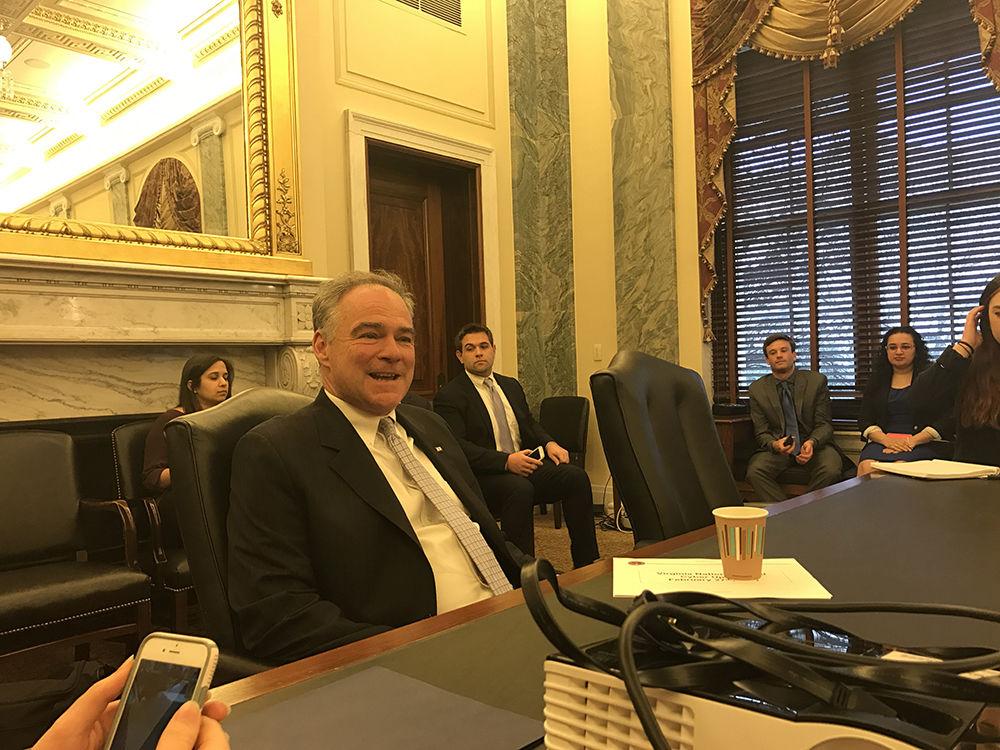A large conversation is going on in Washington right now about the increasing costs of higher education, revamping of the Pell Grant system, the chronically underfunded HBCUs, universal access to higher education and redefining higher education to include all the options, such as career and technical education.
A few weeks ago, I wrote a column entitled, “It Adds Up: The Value of a Degree from NC State University.” Our university offers an incredible value, ranked among the top 10 public universities for value in the United States. We are fortunate at NC State to receive a degree at such a value, but even our students are not free from the rising costs of higher education.
In 2015, Scott Lampe on the UNC Board of Governors said this about proposals for increased tuition: “Tuition is going to have to go up some just about every year.”
And it has.
According to Young Invincibles — a national organization engaged in bringing a voice to young people on issues of education, health care and jobs — tuition and fees across all types of institutions have risen 28 percent since 2008.
The UNC Board of Governors voted in 2015 to raise the costs facing in-state undergraduates an average of 4.3 percent for the 2015-16 school year and 3.7 percent in the 2016-17 school year.
The ever-increasing cost of higher education is expected to be brought to the forefront of policy making in Washington over the next two years due to the Higher Education Act, and we have a seat at the table.
On Monday, I traveled to Washington, D.C. to meet with the staff of Young Invincibles, the policy advisor for Sen. Patty Murray from Washington and Sen. Tim Kaine from Virginia. This college journalist summit, hosted by Young Invincibles, focused on the conversation evolving around the Higher Education Act.
The HEA was due to be reauthorized in 2013, but was extended until 2016 in Congress. At this point, it is expected to be reauthorized by 2018, making it hugely present for the next few years. This Act was first passed in 1965 and was designed to be reauthorized every few years to bring Congress back to the conversation and to reexamine the Act’s effects. It is a sweeping bill that covers affordability and access, student loan programs, federal regulations and more.
It is imperative that the Higher Education Act is reauthorized as soon as possible and not simply extended, so that issues in affordability and accessibility to college can be confronted. There are several current issues with the law that can actually be resolved due to bipartisan support. Some of these policy changes would include extending Pell Grants to year-long instead of semester-based, so that students can take summer courses and graduate earlier; extending the timeline students have to apply to the FAFSA by allowing families to use tax records from the previous year, which is something President Barack Obama implemented but is not yet written into law; and simplifying student loan repayment.
Also in the conversation is improving Federal Work-Study, since only 16 percent of institutions awarded Federal Work-Study money to every eligible student, a statistic that is extremely disappointing.
If colleges are going to assert that students will be able to receive jobs on campus, but upon arriving don’t deliver as students realize there are no jobs available, the students in that situation can be in serious financial trouble. Yet another issue area this runs into is college regulations, which should be used as long as they are about protecting the students. Students have a right to know their financial situation before they go to school.
As part of the Young Invincibles Journalism Summit, we had the opportunity to ask questions to Kaine about issues in higher education.
One particular comment that stood out to me from the senator was about not only how to pay for college, but investigating each college to understand how the funds are distributed. “We really should be focusing on cost control,” Kaine said. “We often provide money to institutions, but we should provide it to the people … the dollar should follow the students.”
There are so many issues to tackle when it comes to higher education, and they are all wrapped up in the Higher Education Act. This is why it is so important for us as students to be paying attention to the federal conversation on higher education and ensuring that in the talks to be had, we have a seat at the table.














